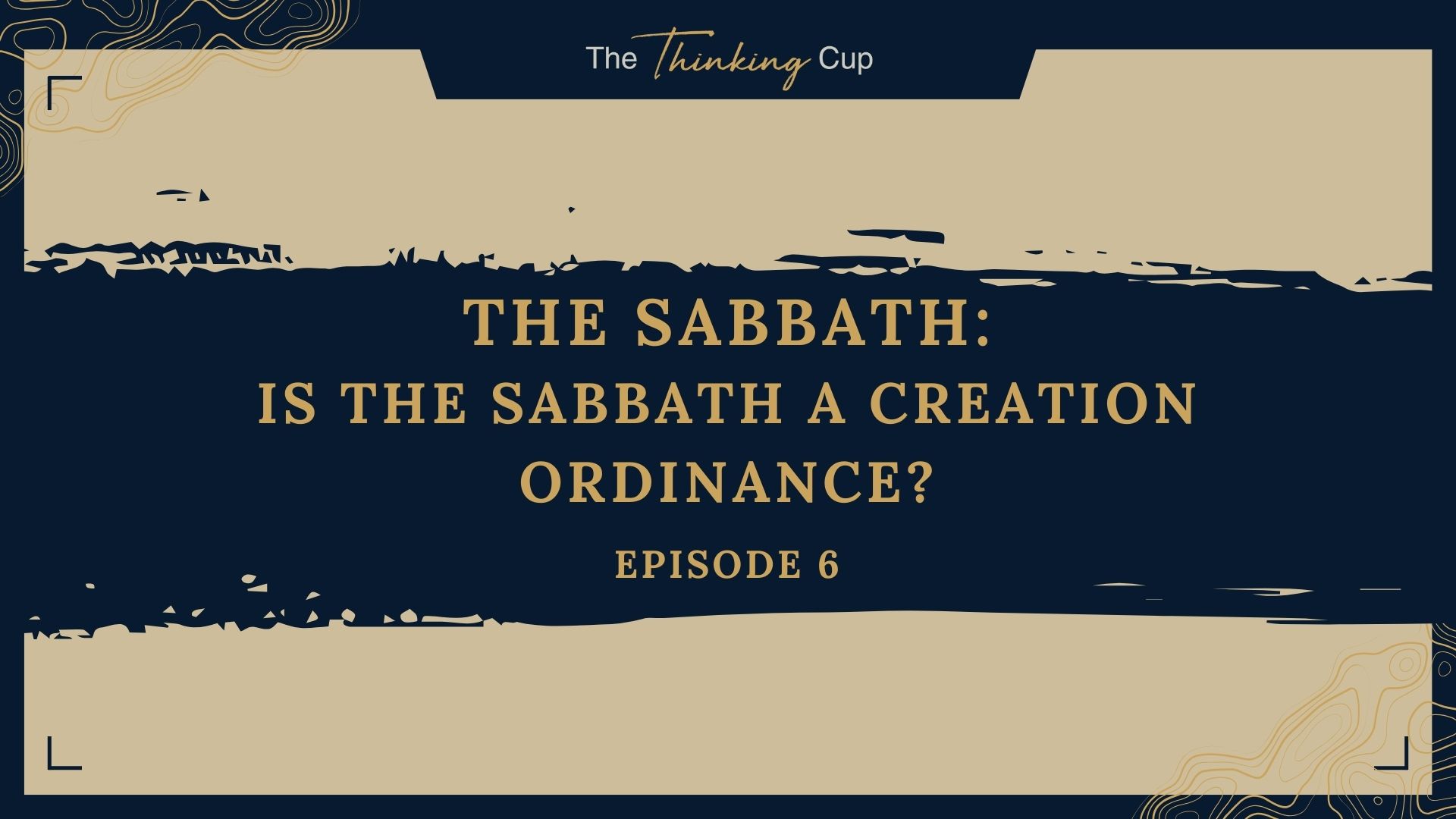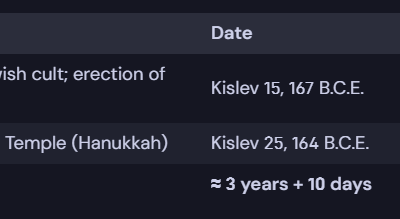One of the primary arguments for mandatory Sabbath observance is the claim that the Sabbath is a creation ordinance established at the beginning of human history and, therefore, binding on all people, both Jews and Gentiles. The key passage used to support this argument is Genesis 2:2–3, which states:
“And on the seventh day God finished his work that he had done, and he rested on the seventh day from all his work that he had done. So God blessed the seventh day and made it holy, because on it God rested from all his work that he had done in creation.” (Genesis 2:2–3, ESV)
Unfortunately, this understanding is not only held by the SDA Church but also can be found as the standard proof text for Adventist Pastors and laity to attempt to enforce the Sabbath on other Christians. Here is a recent Instagram Theologian, Gabriel T. from the Advent Truth, that proves my point:
(Instagram Link: https://www.instagram.com/reel/DFkoeGjxLny/)
I will refrain from poking holes in the theology presented in this video. I will let the blog posts I’ve written do the talking.
At first glance, some might assume that this passage in Genesis 2:2-3 establishes a universal command for Sabbath observance. However, a closer examination reveals that no such command is given. The text simply describes what God did on the seventh day—it does not instruct humanity to follow the same pattern. The crucial term shabbat (Sabbath) is not even used in this passage. Instead, the focus is entirely on God’s rest, not on any requirement for humans to observe a weekly day of rest.
Furthermore, if the Sabbath were a creation ordinance, it would be binding on all people, not just Israel. In contrast, biblical evidence shows that the Sabbath was uniquely given to Israel as a sign of the Mosaic Covenant (Exod. 31:16–17).
“Therefore the people of Israel shall keep the Sabbath, observing the Sabbath throughout their generations, as a covenant forever. It is a sign forever between me and the people of Israel that in six days the Lord made heaven and earth, and on the seventh day he rested and was refreshed.’ ”” (Exodus 31:16–17, ESV)
Even if the Sabbath were a creation ordinance, this would not automatically mean it is universally required—just as marriage, another creation ordinance (Gen. 2:18–25), is not mandatory for every individual. (These points are never dealt with by internet Adventist theologians like Gabriel T., video above) The New Testament presents celibacy as a valid and even superior option for some (Matt. 19:10–12; 1 Cor. 7:1, 7). Likewise, even if the Sabbath were instituted at creation, it would not necessarily follow that it remains a universal requirement.
A key issue undermining the claim that the Sabbath originated at creation is the complete absence of any record of Sabbath observance before Moses. The patriarchs—Adam, Noah, Abraham, Isaac, Jacob—are never described as keeping the Sabbath. There is no mention of Sabbath observance in the entire period between Adam and Moses, spanning approximately 2,500 years. If the Sabbath had been in effect from creation, it is highly unusual that Scripture makes no reference to anyone observing it during this time.
Lewis Sperry Chafer highlights this problem, pointing out that Job—a man who lived long before the giving of the Mosaic Law—never mentions the Sabbath, despite discussing many other aspects of humanity’s relationship with God.
Chafer states:
“It is incredible that this great institution of the sabbath could have existed during all these centuries and there be no mention of it in the Scriptures dealing with that time. The words of Job, who lived five hundred years and more before Moses, offer an illustration. His experience discloses the spiritual life of the pre-Mosaic saint, having no written Scriptures, and striving to know his whole duty to God. Job and his friends refer to creation, the flood, and many details of human obligation to God; but not once do they mention the sabbath. Again, it is impossible that this great institution, with all that it contemplated of relationship between God and man, could have existed at that time and not have been mentioned in any portion of the argument of the book of Job.” [3]
Chafer further argues in his monumental Systematic Theology work, that the absence of Sabbath observance in the pre-Mosaic period demonstrates that it was not a universal command:
“When it is assumed that the Sabbath was imposed on man at Eden, it is based on the supposition that this passage so teaches; which, however, the passage does not necessarily imply. And it should also be remembered that Genesis was not written until Moses’ time; and, when seeking for Biblical evidence regarding the pre-Mosaic observance of the seventh day, it will be found that, unlike other religious activities, such as prayer, circumcision (cf. John 7:22), and sacrifices, the observance of which is recorded of that period, there is no mention of a Sabbath observance from creation to Moses. It is incredible that this great institution of the Sabbath could have existed during all these centuries and there be no mention of it in the Scriptures dealing with that time.” [4]
The New Testament further confirms that Genesis 2:2–3 does not establish the Sabbath as a creation ordinance. The passage is referenced in Hebrews 4:3–4, where it is used not as a command for Sabbath observance but as a theological illustration of salvation rest in Christ. Harold H. P. Dressler, a biblical scholar contributing to From Sabbath to Lord’s Day, affirms this perspective, stating:
“Genesis 2 does not teach a “creation ordinance” in our opinion; the institution of the Sabbath for the people of Israel, however, was based on the creation account and became a sign of God’s redemptive goal for mankind.” [5]
In summary, several factors demonstrate that the Sabbath is not a creation ordinance:
- The term shabbat is not used in Genesis 2:2–3; only the phrase “seventh day” appears.
- No command is given for humanity to observe the seventh day as a Sabbath.
- There is no record of anyone observing the Sabbath before Moses.
- Throughout Scripture, the seventh day is presented as a day of divine rest, not as an obligatory human observance.
Since the Sabbath was instituted as a specific sign of the Mosaic Covenant, it cannot be considered a universal ordinance for all humanity. If it were a creation ordinance, it would be binding on both Jews and Gentiles. However, Scripture consistently presents the Sabbath as a covenantal sign given exclusively to Israel (Exod. 31:16–17). Thus, there is no biblical basis for mandatory Sabbath observance for Jewish or Gentile believers based on Genesis 2. The argument that the Sabbath is a universal creation ordinance lacks scriptural support and is contradicted by both the Old and New Testaments.
In Christian Love,

[1] Arnold G. Fruchtenbaum, Israelology: The Missing Link in Systematic Theology, Rev. ed. (Tustin, CA: Ariel Ministries, 1994), i.
[2] D. A. Carson, ed., From Sabbath to Lord’s Day: A Biblical, Historical, and Theological Investigation (Eugene, OR: Wipf & Stock, 1999), 3.
[3] Lewis Sperry Chafer, Grace (Philadelphia, PA: Sunday School Times Company, 1922), 248–249.
[4] Lewis Sperry Chafer, Systematic Theology, First Edition (Dallas: Kregel Publications, 1993).
[5] Harold H. P. Dressler, “The Sabbath in the Old Testament,” in From Sabbath to Lord’s Day: A Biblical, Historical, and Theological Investigation, ed. D. A. Carson (Eugene, OR: Wipf & Stock, 1999), 30.



If the Sabbath was only for the Jews, then why is it known in 160 languages (created at the Tower of Babel, ab’t 400-500 years before Sinai)–this is according to work done by William Mead Jones and others; see https://torahtimes.org/book/ChartOfTheWeek.pdf
That’s a fascinating point, and the linguistic data presented by William Mead Jones and others, especially regarding the widespread recognition of a seven-day cycle and a ‘Sabbath’ or ‘rest day’ on the seventh, is indeed compelling. It strongly suggests a common, very ancient origin for the concept of the week, predating the giving of the Law at Sinai.
However, recognizing a concept linguistically across many cultures isn’t the same as confirming a *binding religious obligation* for all people today. Let’s break that down:
1. Linguistic Recognition vs. Divine Command: The chart beautifully illustrates that the word “Sabbath” or its equivalent for a seventh-day rest is widespread. This could point to a common memory from creation (as many Adventists believe) or a widespread human recognition of a natural rhythm of work and rest. However, the commandment to observe the Sabbath as a specific religious institution, with detailed stipulations and consequences, was given uniquely to Israel at Sinai. While the concept of a seventh-day rest might have existed prior, the covenantal law was established with a specific people.
2. To Whom Was the Law Given?: The Mosaic Law, including the Sabbath commandment, was given to the nation of Israel as part of their covenant with God. The Bible often refers to the Sabbath as a specific sign of the covenant between God and Israel (e.g., Ezekiel 20:12, Exodus 31:16-17). While the underlying principle of rest might be universal, the *command* to observe it as a religious ordinance was explicitly directed to Israel.
3. The New Covenant Perspective: For many Christians who are not Seventh-day Adventists, the New Testament introduces a new covenant through Jesus Christ. In this new covenant, the emphasis shifts from adherence to the Mosaic Law’s detailed regulations to faith in Christ and the indwelling of the Holy Spirit. Passages like Romans 14:5-6 and Colossians 2:16-17 are often cited to suggest that specific days of worship are no longer binding in the same way they were under the Old Covenant, and that Christ Himself is our true rest.
4. Descriptive vs. Prescriptive: The linguistic evidence is descriptive of historical patterns. It shows how language has preserved a concept. But for a command to be binding on all people today, it requires a clear, prescriptive divine mandate that applies universally and perpetually, not just a historical linguistic pattern. If every concept found in ancient languages was universally binding, we would have many more obligations than are commonly recognized by any major religion.
So, while the linguistic evidence from the chart is powerful in showing the ancient and widespread nature of the seven-day week and the concept of a seventh-day rest, it doesn’t, on its own, bridge the gap to definitively prove that the Mosaic Sabbath commandment is universally binding on all people, including gentiles, under the New Covenant. That’s a theological interpretation that requires more than just linguistic data.
I hope this blessed you!
Thank you for your article. There is one nuance that you may have left out though which is that Gen 2:3 does in fact contain the verb “shabbat” in it – where it says that God “rested” from the work of creation on the 7th day. However, where “Shabbat” is used in Exodus and Deuteronomy to refer to the Sabbath day in the sense that it is the day when the Israelites are commanded not to work, it is always used as a noun and always accompanied by the specific command not to work on that day. Hence you should perhaps adjust your article to say that the noun form of “Shabbat” that is always used to refer to the Sabbath day, is not found at all in Genesis nor in Exodus until it appears in Exod 16:23 for the first time accompanied by the specific command to the Israelites not to work.